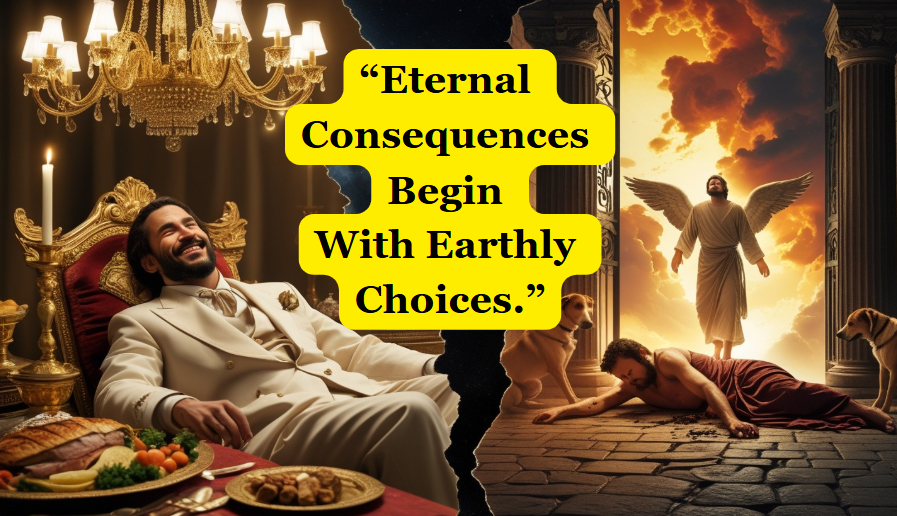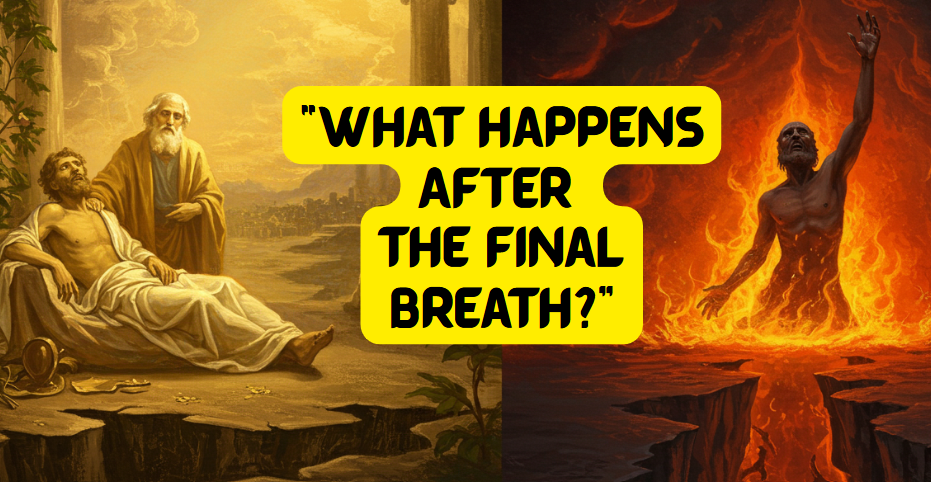Delve into Luke’s parable of the rich man and Lazarus. Uncover timeless themes like wealth, compassion, and justice, and how they challenge our modern values.
Exploring the Parable of the Rich Man and Lazarus in Luke
The tale of the Rich Man and Lazarus is one of the key parables shared by Jesus in the Gospel of Luke. Found in Luke 16:19-31, the narrative invites us into a profound exploration of themes that remain relevant across the ages—wealth, poverty, righteousness, and eternal destiny. As you read this, picture yourself in the crowd, listening to Jesus as He tells this story. Why might He have chosen this topic? Why these characters? Let’s dive into this narrative that has intrigued theologians, scholars, and laypersons alike.
Understanding the Characters
The Rich Man
The parable opens with the description of a rich man, and quite intentionally, Jesus paints him lavishly. He wears purple and fine linen, enjoying a life of luxury every day. Purple dye was extremely expensive in ancient times, associated with royalty or wealth. This rich man represents those who are consumed by material wealth, prioritizing personal pleasures over spiritual or community obligations. While he enjoys earthly prosperity, the narrative suggests a lack of awareness or concern for the suffering around him.
Lazarus
In contrast, Lazarus, whose name interestingly means “God has helped,” is presented as a poor man, laying at the rich man’s gate. Covered in sores and longing to eat what fell from the rich man’s table, Lazarus embodies destitution and helplessness. He symbolizes those marginalized by society, often ignored or overlooked. Yet, it’s his faith—or perhaps his patience in suffering—that stands out, all juxtaposed against the rich man’s ignorance.
The Great Reversal
Death and the Afterlife
After their deaths, the fate of both men starkly contrasts with their earthly lives. Lazarus finds himself comforted at Abraham’s side, while the rich man ends up in torment in Hades. It’s a startling reversal, a theme Jesus often employed to illustrate the upside-down nature of God’s kingdom. The rich man’s pleas for relief are denied, emphasizing the permanence of the afterlife’s consequences and the importance of one’s actions and attitudes in life.
A Chasm That Cannot Be Crossed
The narrative describes a great chasm fixed between Lazarus and the rich man, underscoring the finality of their respective eternities (Luke 16:26). This unbridgeable gap serves as a vivid metaphor for the irreversible nature of one’s choices once this earthly life ends. It’s a poignant reminder of the spiritual divide that can exist between the self-serving wealthy and the pious suffering.

Lessons in Compassion and Justice
Spiritual Wealth Over Material Wealth
Through the parable, Jesus challenges the notion that prosperity equates divine favor, a belief prevalent in His time and, to an extent, ours. By prioritizing earthly wealth, one risks their eternal well-being. True wealth, Jesus suggests, lies in rich relationships with God and others, marked by compassion and justice.
The Call to Action
In his desperate state, the rich man asks Abraham to send Lazarus to warn his family. Abraham’s response—that they have Moses and the Prophets—is telling, echoing Jesus’ teachings about listening and acting upon God’s word. It’s a call for every listener to not wait for supernatural signs but to live out the scripted calls to justice while we have breath.
Bridging the Ancient and Modern
Socioeconomic Implications
Reflect on how this parable is as pertinent today as it was in early Christian communities. Socioeconomic inequalities persist, and Jesus’ teachings challenge us to confront these with humility and action. Who are the “Lazaruses” at your gate today? Understanding your role in this modern context can bring personal transformation and broader societal change.
Redefining Neighborliness
This parable extends the definition of who our neighbors are and elevates the moral and ethical responsibilities we hold towards them. It’s a discourse on empathy, urging not just passive understanding but active intervention to alleviate the burdens of those less fortunate.
Concluding Thoughts
The parable of the Rich Man and Lazarus is more than a story—it’s an invitation to introspect about your values, behaviors, and how they align with your spiritual and ethical beliefs. Are you living in a way that seeks heavenly treasures over earthly pleasures? Are you attentive to the Lazaruses in your path? Let the eternal truths Jesus conveyed provoke thought and action within you.

🔍 Explore More Bible Insights:
✅ 1. The Role of Eliab – David’s Brother in His Journey to Facing Goliath
Tone: Relational, reflective, character-focused
🔹 “Family Tensions and God’s Purpose – Discover the Connection”
Read it here.»
✅ 2. What Jeremiah 29:11 Means for Us Today
Tone: Hopeful, encouraging, life application
🔹 “God’s Plans Still Stand – Find Your Hope Here”
Read it here.»
✅ 3. The Wise and Foolish Builders – A Strong Foundation in Faith (Matthew 7:24-27)
Tone: Foundational, practical, discipleship
🔹 “Build Your Life on the Rock – Keep Learning”
Read it here.»
✅ 4. The Roman Centurion at the Cross – A Moment of Revelation
Tone: Awe-inspiring, redemptive, gospel-centered
🔹 “From Witness to Believer – Read His Revelation”
Read it here.»

📘 Jesus and the Woman Caught in Adultery – Grace and Mercy Over Judgement
A powerful retelling of John 8:1-11. This book brings to life the depth of forgiveness, mercy, and God’s unwavering love.
👉 Check it now on Amazon
As a ClickBank Affiliate, I earn from qualifying purchases.
Acknowledgment: All Bible verses referenced in this article were accessed via Bible Gateway (or Bible Hub).
“Want to explore more? Check out our latest post on Why Jesus? and discover the life-changing truth of the Gospel!”








